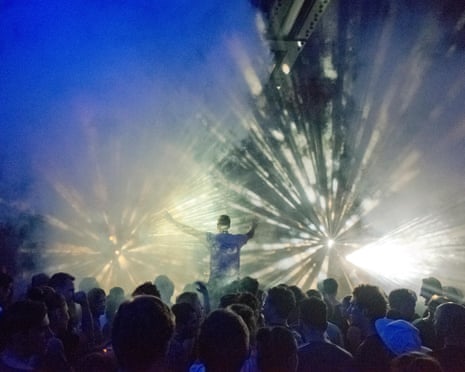Berlin"s Historic Schwuz Nightclub Declares Bankruptcy, Urges Community Support
In a significant blow to Berlin"s vibrant nightlife and LGBTQ+ culture, Schwuz, known as Germany"s "oldest and biggest" gay nightclub, has officially declared bankruptcy after nearly 50 years of operation. The closure of this iconic venue, a cornerstone of the gay scene in West Berlin since the 1970s, has been attributed to the dual pressures of rising inflation and a shifting party culture that is reshaping the city’s nightlife landscape.
Background & Context
Founded in 1973, Schwuz emerged as a sanctuary for the LGBTQ+ community during a transformative period in West Berlin"s history. It played a pivotal role in the early days of Berlin Pride and was the launchpad for Siegesaule, one of Germany"s most prominent queer magazines. Over the decades, Schwuz has become synonymous with Berlin"s identity as a liberal and inclusive city, drawing an international crowd and contributing to the cultural fabric that defines the city today.
However, the nightclub has faced significant challenges in recent years. Declining revenue streams have plagued the establishment, exacerbated by the rising costs of operation, which have become unsustainable. The owners have now issued a heartfelt plea to the community, urging financial support to sustain the club through to October 2025, when insolvency hearings are set to begin.
Key Developments
The announcement of Schwuz"s bankruptcy comes on the heels of a broader trend affecting Berlin"s nightlife, particularly venues that cater to the LGBTQ+ community. In a recent statement, the club"s management expressed their dismay over the financial struggles, stating that "the changing dynamics of party culture and increased operational costs have made it increasingly difficult to maintain our beloved venue." The owners are now calling on the community to rally behind Schwuz, emphasizing its historical significance and the role it has played in countless lives over the years.
Adding to the sense of loss, the nearby Busche Club—a historic gay and lesbian dance spot that opened in 1988 in East Berlin—also recently closed its doors after four decades of operation, citing similar financial difficulties. Dubbed the "anti-Berghain," Busche was known for its inclusive atmosphere and international appeal, making its closure yet another stark reminder of the challenges facing Berlin"s nightlife.
\n\n
Image for Berlin"s Historic Schwuz Nightclub Declares Bankruptcy, Urges Community Support
Broader Impact
The bankruptcy of Schwuz and the closure of other LGBTQ+ venues signal a troubling trend within Berlin"s nightlife scene. Experts have noted that inflation, coupled with changing social dynamics, has led to a decline in patronage at many traditional venues. "The landscape of nightlife is evolving, and many places that once thrived are unable to adapt to the new realities," said nightlife consultant Klaus Richter. "This is not just about one nightclub; it reflects a wider cultural shift that could have lasting implications for Berlin"s identity as a hub for queer culture."
Historically, Schwuz has been more than just a nightclub; it has served as a cultural institution, fostering community and activism. The loss of such a venue could diminish the safe spaces available for LGBTQ+ individuals and may hinder future generations from experiencing the rich history and culture that Schwuz represents.
What"s Next
As the owners of Schwuz seek community support, they have indicated plans to organize fundraising events and campaigns to bolster their efforts. The response from the LGBTQ+ community and allies will be crucial in determining the future of the nightclub. "We are hopeful that the community will come together to save Schwuz. It has always been a place of love, acceptance, and joy," they stated in their announcement.
The unfolding situation at Schwuz raises questions about the sustainability of LGBTQ+ venues in Berlin and what measures can be taken to protect and preserve these cultural landmarks. As similar discussions occur in other cities around the world, the outcomes in Berlin may serve as a case study for how to navigate the complexities of nightlife in an ever-evolving cultural landscape. For those interested in staying informed about related coverage, recent developments in political contexts may offer insights into how broader societal changes impact local communities.

Image for Berlin"s Historic Schwuz Nightclub Declares Bankruptcy, Urges Community Support







![[Video] Gunfire between Iraqi security forces and Sadr militias in Baghdad](/_next/image?url=%2Fapi%2Fimage%2Fthumbnails%2Fthumbnail-1768343508874-4redb-thumbnail.jpg&w=3840&q=75)
